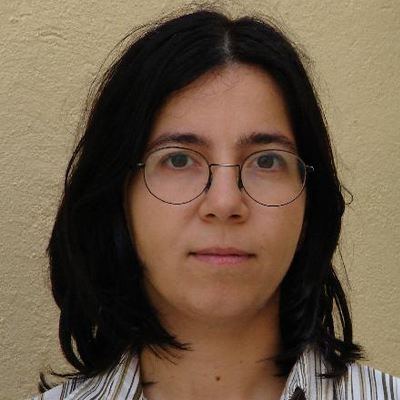Hi from Paris,
These days, the climate is never short of bad news. We are probably experiencing the hottest autumn on record. And this is just the beginning. The UN has warned that we are heading straight for a catastrophic warming of at least 2.5° Celsius by the end of the century.
With just a few days before another Climate Change Conference, which is likely to be fruitless again, angrier and younger activists are trying to shake us out of our indifference, or resignation. They appear to be using more radical tactics, such as throwing soup on paintings by Van Gogh, Monet and Vermeer, and glueing themselves to motorways.
In Western Europe, their new techniques have excited hot debate, but elsewhere, you hardly hear about them: “In Eastern-Europeanistan, the climate is not our first priority,” said our Polish colleague, half-joking, half-serious.
But radicalism is sometimes not where you expect it. Who takes more risks? Activists who glue their hand to a painting in Germany, or those who challenge the timber mafia in Romania?
Nelly Didelot, this week’s Editor-in-Chief
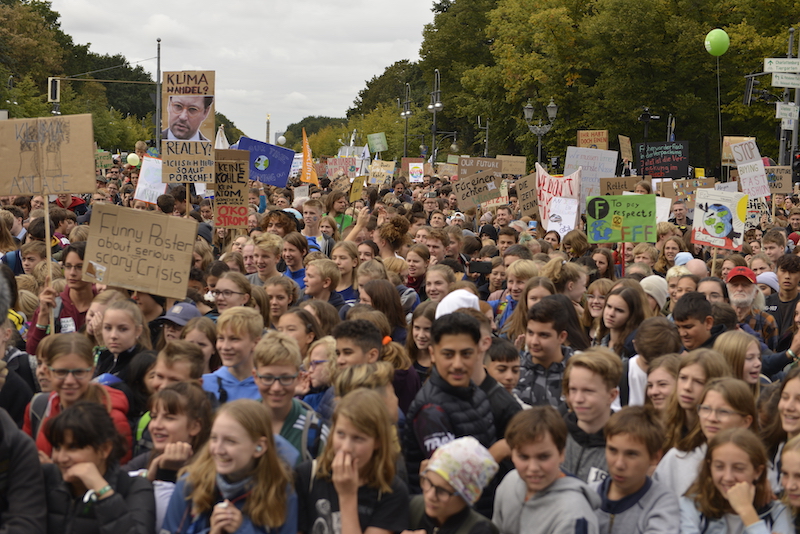
A few months ago, as I was rummaging through old stacks of paper I had stored in my grandmother’s attic, I found a letter from 2007 that the assistant to then Chancellor Angela Merkel had written to me and my sister.
It was in response to an appeal for which we had collected 364 signatures in our high schools, asking Merkel not to put the interests of the German auto industry first, but to keep her promise and treat climate protection as a top priority.
Kind words were the response, informing us how strongly Merkel is committed to climate protection. Reading this answer, one could immediately feel how shallow these phrases were.
Today they seem to be even more superficial, as we are light years away from adequately protecting the climate. The crisis has worsened. This year’s October in Germany was 3.8 ° Celsius warmer than the average of any October since 1881.
I see the activists of today and remember how desperate I was fifteen years ago. I remember the sleepless nights thinking about what I could do to raise awareness. How I decided to organize a conference for my school about the threat of climate change, to at least do something.
And I remember resigning myself a little later because nothing was going to change anyway as a result of my desperate “activism”. That I was a lonely teenager who had no influence on political decisions.
For today’s young activists, it must feel even more like it’s too late and too little. For me, however, seeing their actions feels like a relief. Worrying about climate change is no longer an isolated perspective. Today’s fight for climate action is being waged collectively and is more powerful. It’s the fight of a generation that is willing to use more radical means to make its voice heard. That gives me a little hope. Even if the shallow phrases about not acting still sound much louder.
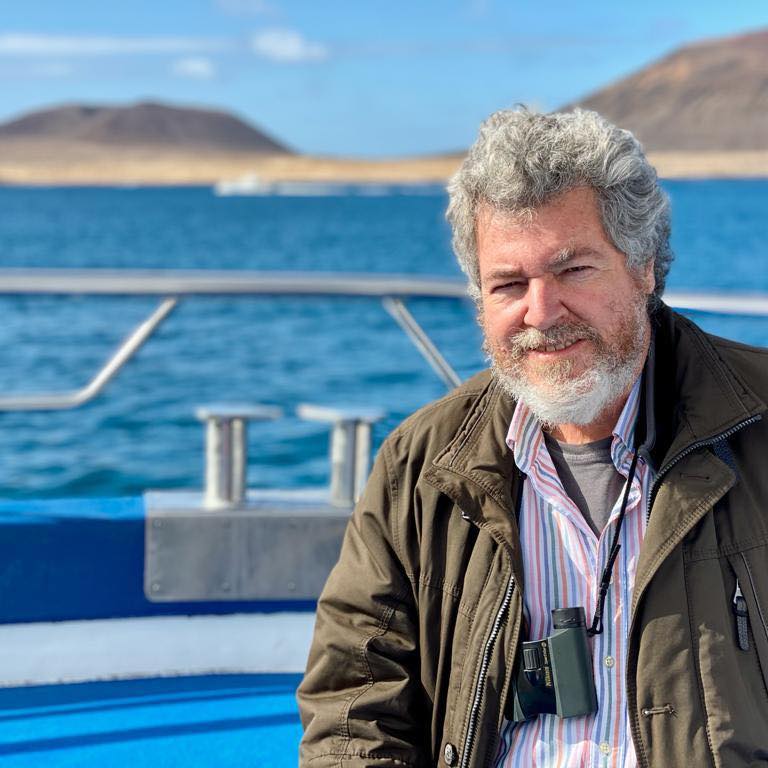
Juan López de Uralde left his post as director of Greenpeace Spain to found the country’s first Green Party in 2011 – but without success. Today, the Greens are divided among various coalitions.
European Focus: Let’s start with the problem. Will Spain be the first country in Europe to be affected by the worst aspects of climate change?
Juan López de Uralde: We’re probably the EU’s first, and most vulnerable victim of climate change. According to the Spanish Meteorology Agency, the temperature increase has already reached 1.2º C. This has implications for the spread of wildfires, the reduced availability of water, the widening of arid zones and much more. The problem is that passivity is taking its toll – as we have long warned.
European Focus: As a woman from Córdoba, I remember the 47ºC summers and some years of water rationing. The awareness of climate disaster is there in Spain. Yet there is no Green Party and no strong environmental activism, why?
de Uralde: We have tried without success. There are three main problems: Firstly, the lack of resources. Secondly, the Spanish electoral system, which punishes small parties. And thirdly, there is no strong social support for the Green cause as compared to other European countries. Awareness has grown, but the climate issue is not yet a decisive factor in voting decisions. That’s the main difference with Europe. Economic or employment problems count more.
European Focus: You were in jail after gatecrashing a Climate Change Conference (COP) in 2009 with a banner. Now we see young activists throwing soup at Van Goghs. Do Spanish activists have to be even more radical to be heard?
de Uralde: We went directly to those who were causing the problem. But I respect what these activists are doing: it’s a cry for help from the younger generation. In Spain there was also a factor that we have not mentioned so far: The biggest climate mobilizations were around COP25 (in Madrid), just before the Covid 19 pandemic. Some major parties are also beginning to take up the climate agenda, but it remains to be seen whether this is really the case. If not, activism will increase.

According to the latest polls, only 1.3% of Estonian voters support the Green Party. A political party in Estonia needs a threshold of 5% to enter parliament, so it is unlikely that the Greens will be represented in parliament in the next elections in March 2023.
Many commentators attribute this low rating to the party’s lack of a comprehensive political program that includes issues other than those concerning the environment. This is backed up by another survey, which states that 71% of Estonians would like to lead a more environmentally friendly lifestyle, but financial restraints and current laws do not support such a change.
With such a self-image, it is surprising to see concern about the environment not translating into political support. Is it something the Green Party alone can fix or should Estonians take a hard look in the mirror?
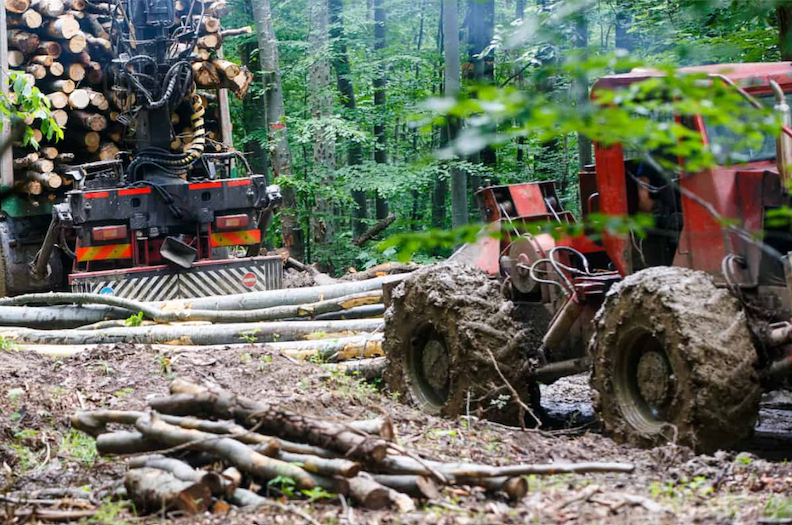
Last autumn an environmental activist and two journalists were shooting a documentary on the deforestation of Romania’s forests, when they were attacked, beaten and threatened with death. Although there were dozens of attackers, the police were only able to arrest four. Some of them were employees of the National Forest Administration, who are paid by the state to protect forests.
This is just the tip of the iceberg that shows the reality that activists have to face. No wonder they are mostly doomed to fail. Support from Western Europe activists could be crucial in this respect, as in the case of the gold mining project “Rosia Montana Gold Corporation”. This billion-dollar foreign investment in Romania’s Apuseni mountains was stopped after almost twenty years of struggle, which included cooperation between Romanian and international activist groups.
Official statistics estimate that an average of 20 million cubic metres of timber are illegally logged every year in Romania. According to Greenpeace Romania, “local legislation fails to protect nature, even when legal action is taken.”
Some NGOs are trying to encourage the EU to protect forests. It would take many years for these policies to be effective, if they ever can be. There is no real political will to implement them.
Yet Romania is in a privileged situation. While Western European countries are trying to rewild some of their regions, Romania only needs to protect what is still there: over 500,000 hectares of virgin and old-growth forests, which is more than any other country in the European Union. Our biodiversity is unique. We need to educate the entire population if we want to prevent corruption and protect the forests, with the help of a strong civil society.
Where Romanian activists have neither enough knowledge nor tools, western colleagues could also help, with a strategy adjusted to the Romanian reality. The bridge that must be built between Westerners and Easterners rests on different foundations on opposite banks of the river, and needs a unique structure to bring the two sides together.
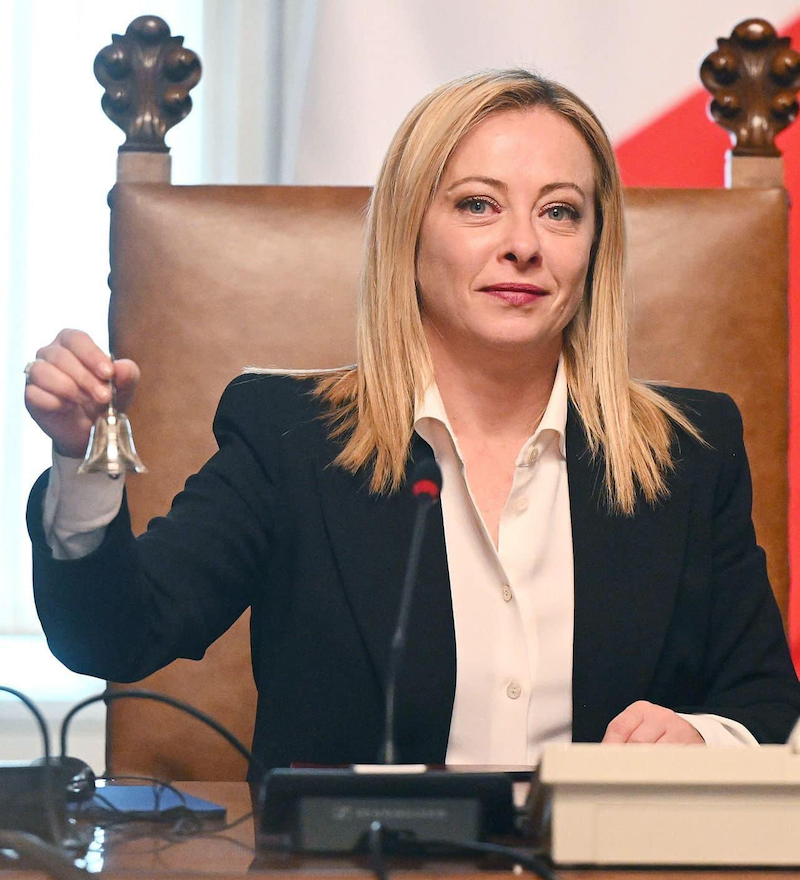
“We know that young people especially care about protecting the environment. We will take this on board. Because, as Roger Scruton, one of the great masters of European conservative thought, wrote: ‘ecology is the most vivid example of the alliance between those who have been here and those who will come after us’.” – Giorgia Meloni
In her first speech to Parliament as Italy’s prime minister, Giorgia Meloni seems to be aware that the climate change issue is unavoidable. But by invoking right-wing ideologues such as Roger Scruton, she manipulates this issue to propose anti-environmental measures. Her party has rejected the European Green Deal and called climate activists gretini (a combination of “Greta” – after Swedish climate activist Greta Thunberg – and “cretini” – idiots).
Now that the far-right party Fratelli d’Italia is in charge of the government, Meloni is using right-wing “ecologism” to advocate the idea of “nature with man in it,” as she has said. This means that she defends the right of corporations to pollute the environment in the name of productivity.
Thank you for reading the 6th edition of European Focus,
This week’s newsletter was written and edited by seven women. Nothing really surprising. In our respective media, most journalists working on the environment are women. Climate activists are also often women, while the climate experts quoted by the newspapers are more likely to be men. A gender bias like any other? Perhaps a future issue will give us the opportunity to answer this question.
See you next Wednesday!
Nelly Didelot






